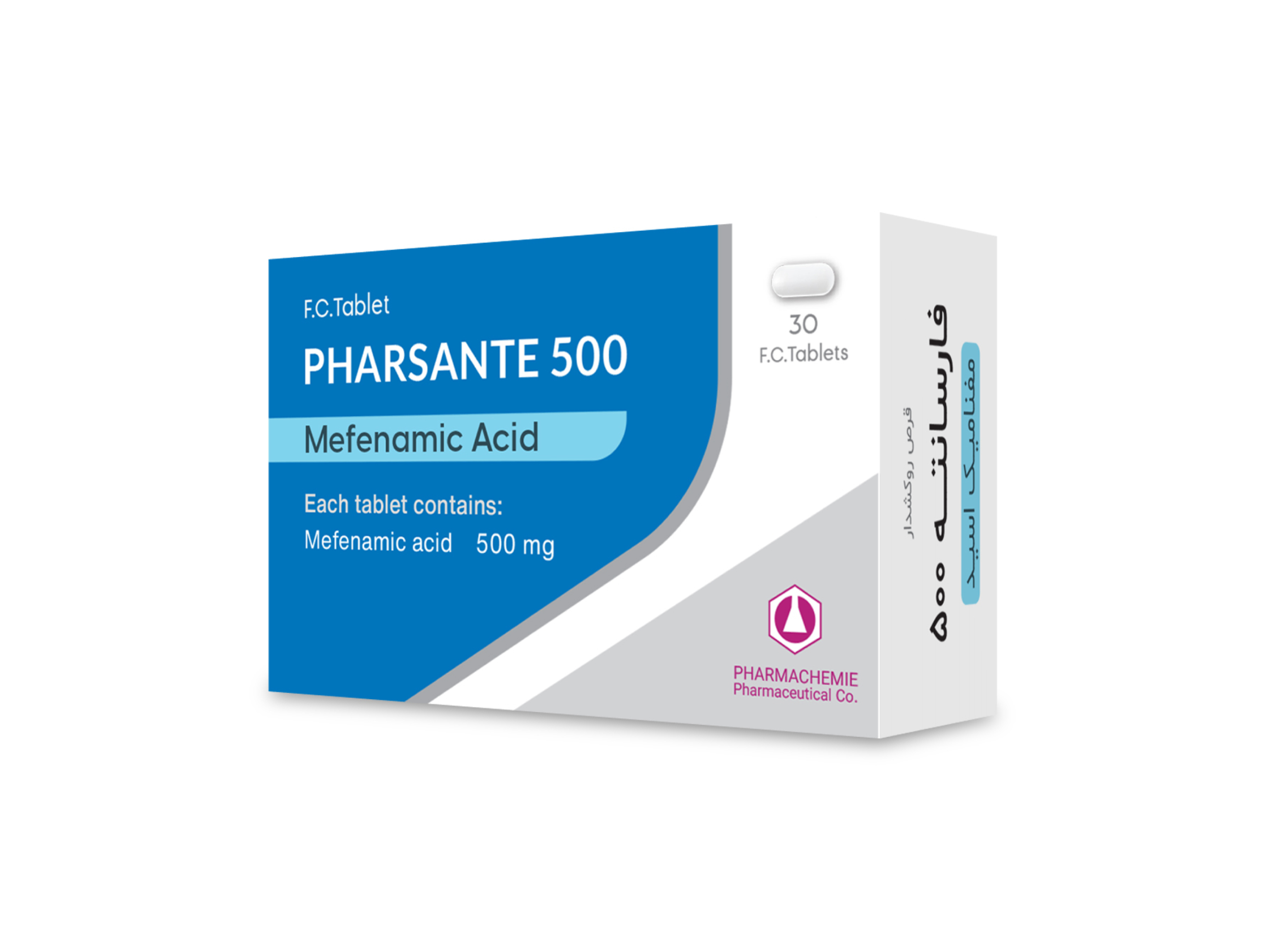Pharsante
Pharsanate Coated Tablets
Generic: Mefenamic Acid 500 mg
Dosage Form: Coated Tablets
Therapeutic Category: Analgesic
Number in Package: 30 tablets
- Indications
- Mechanism of action
- side effects
- Drug interactions
- Warnings
- prohibited usage
- Use in pregnancy and breastfeeding
- نظرات
Mefenamic acid is used to reduce pain, inflammation, and fever. The main uses of this drug include:
Pain in the joints and muscles (such as arthritis)
Menstrual pain
Toothache
Migraine
Various inflammations
It is important to use this drug under the guidance of a doctor, and people with stomach or intestinal problems should consult their doctor.
Mefenamic acid works by inhibiting the enzymes COX-1 and COX-2, which are responsible for the production of prostaglandins. Prostaglandins are involved in inflammation, pain, and fever. By inhibiting COX-1 and COX-2, mefenamic acid helps to reduce inflammation, pain, and fever.
Mefenamic acid may cause side effects such as stomach upset, diarrhea, headache, and dizziness. In case of experiencing any kind of sign or unpleasant condition, it should be reported to your doctor.
Mefenamic acid may interact with other medications, including other NSAIDs, antihypertensives, and anticoagulants. It is best to consult with your doctor before starting or changing any medication to consider possible interactions with other medications.
Mefenamic acid use may be associated with risks, including damage to the digestive system, kidneys, heart, and liver. People with heart problems, digestive problems, kidney problems, or allergies to NSAIDs should avoid taking this drug. Also, you should report any signs or symptoms of discomfort to your doctor and follow your doctor's instructions and warnings.
Mefenamic acid is contraindicated in cases of hypersensitivity to NSAIDs, history of stomach ulcers, severe kidney or heart problems, in the third trimester of pregnancy, and concomitant use with some medications. Always consult with your doctor before taking or changing medications.
Mefenamic acid is not recommended for use during pregnancy, especially in the first trimester, unless it is prescribed by a doctor. In the second and third trimesters of pregnancy and during breastfeeding, it should also be used with caution and in consultation with a doctor. Decisions in this area should always be made with consideration of the potential benefits and risks, and medical consultation is essential.


هنوز نظری ثبت نشده
اولین نفری باشید که نظر میدهید
ثبت نظر